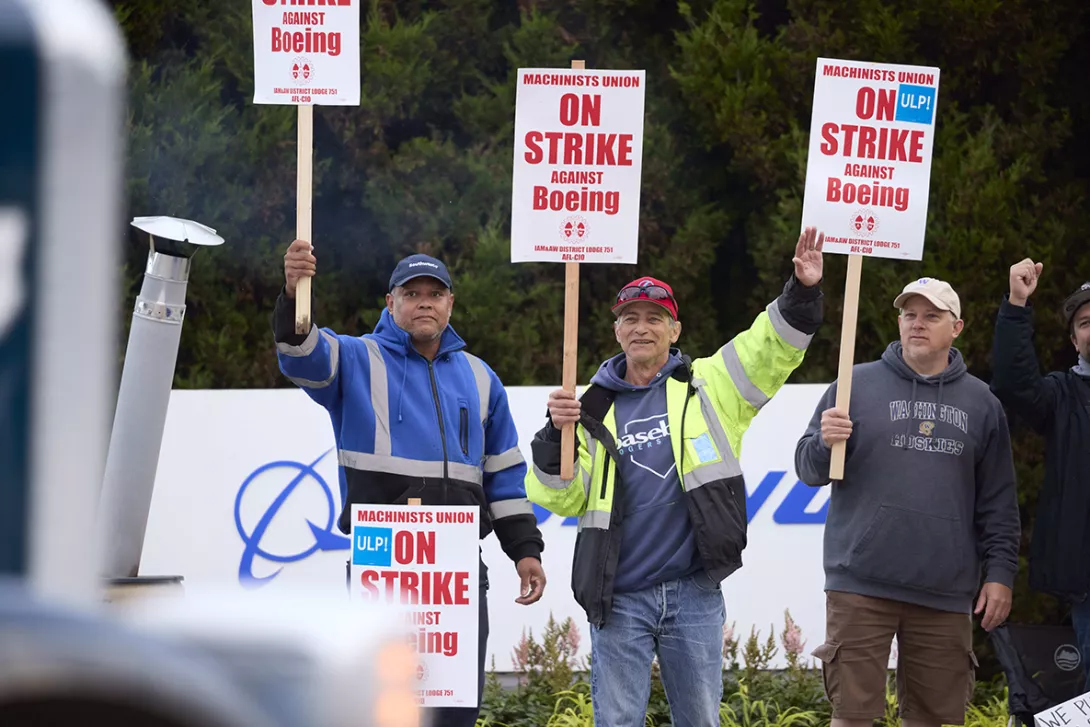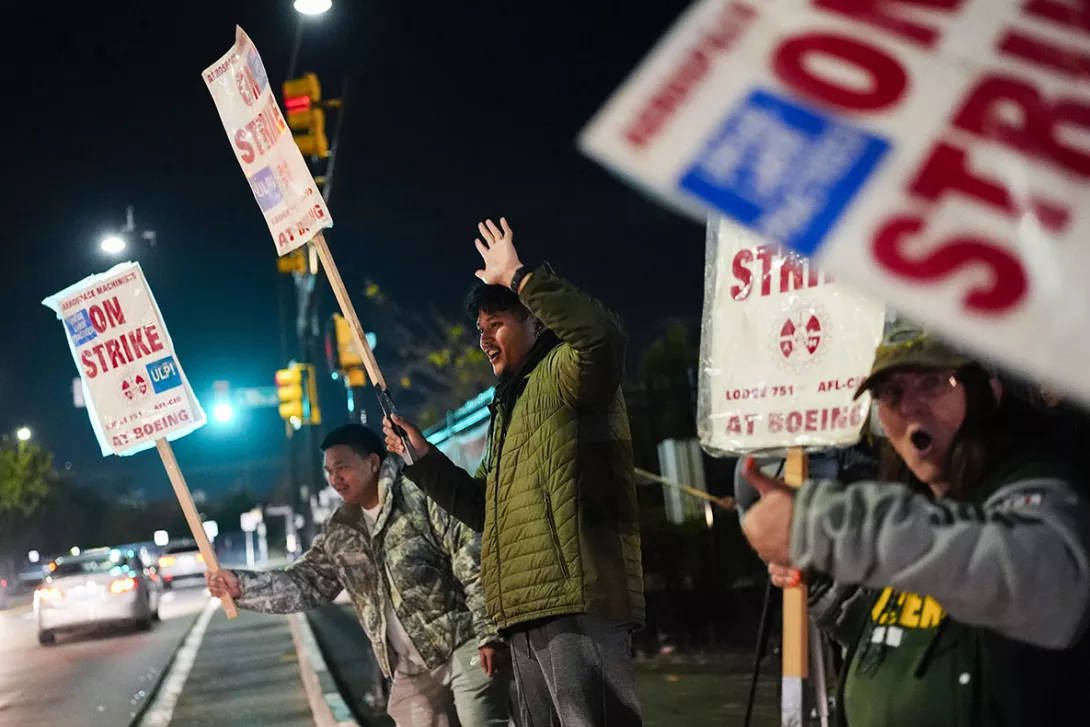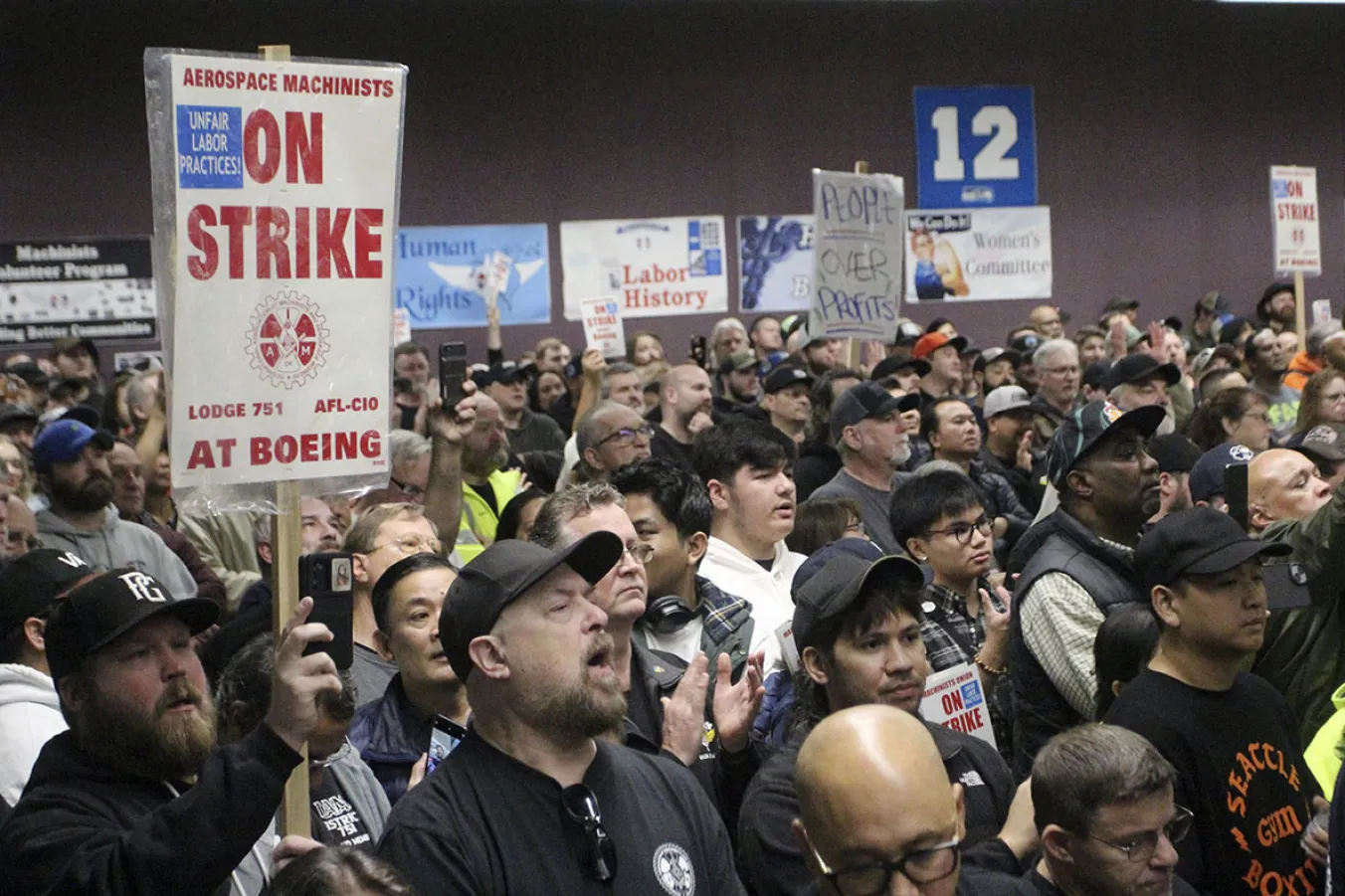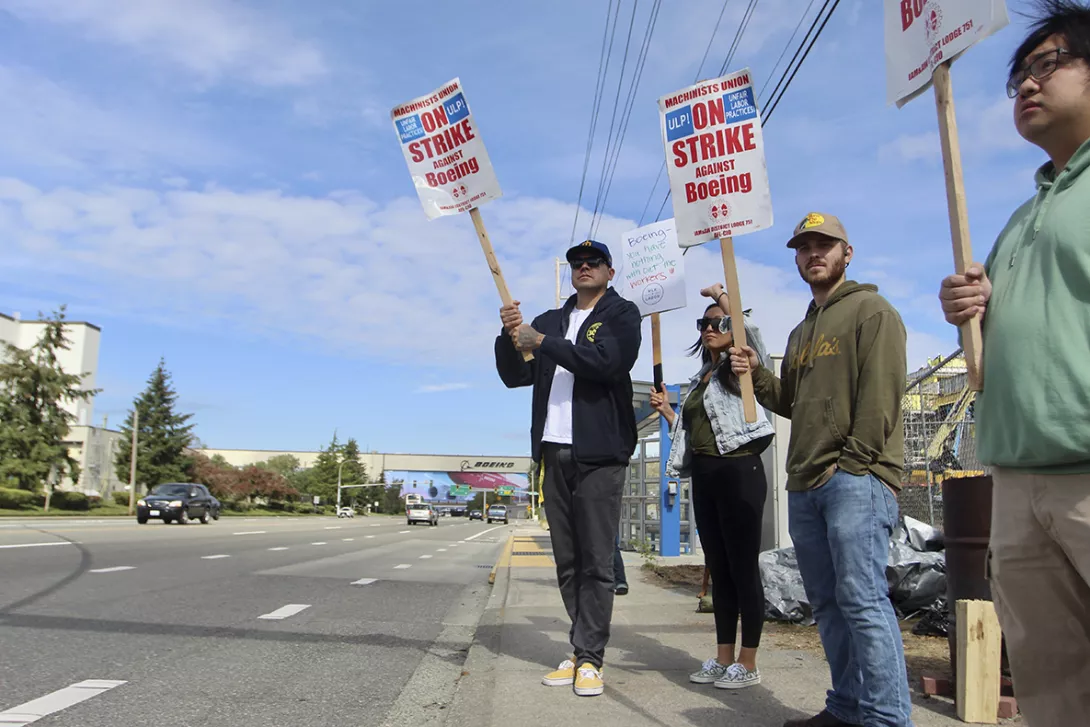Boeing workers take strike action in fight for better wages

AIRCRAFT assembly workers walked out on strike on Friday at Boeing factories near Seattle after union members voted overwhelmingly to go on strike.
The workers rejected a tentative contract that would have increased wages by 25 per cent over four years.
Members of the International Association of Machinists and Aerospace Workers (IAM) voted by 94.6 per cent to reject the proposed contract and 96 per cent to approve a strike.
More from this author

ROGER McKENZIE looks back 60 years to the assassination of Malcolm X, whose message that black people have worth resonated so strongly with him growing up in Walsall in the 1980s

ROGER McKENZIE welcomes an important contribution to the history of Africa, telling the story in its own right rather than in relation to Europeans















